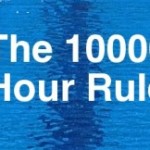Outliers: The Story of Success is a non-fiction book written by Malcolm Gladwell and published in 2008. In Outliers, Gladwell examines the factors that contribute to high levels of success. Throughout the publication, the author repeatedly mentions the “10 000-Hour Rule”, claiming that the key to success in any field is, to a large extent, a matter of practising a specific task for a total of around 10 000 hours. Rave reviews and criticism followed the success of the book.
Boyd Tonkin (The Independent) held an opinion, and wondered why Gladwell “does not yet hold a tenured professorship at the University of the Bleedin’ Obvious”
Another reviewer was also skeptical towards Gladwell’s arguments for the 10,000-Hour Rule by countering that The Beatles’ success had more to do with “the youthful spirit of the age, the vogue for guitar bands and a spark of collaborative chemistry”. Regarding the book, Paul McCartney, former member of The Beatles, said in an interview on August 6, 2010: “I’ve read the book. I think there is a lot of truth in it … I mean there were an awful lot of bands that were out in Hamburg who put in 10 000 hours and didn’t make it, so it’s not a cast-iron theory. I think, however, when you look at a group who has been successful… I think you always will find that amount of work in the background. But I don’t think it’s a rule that if you do that amount of work, you’re going to be as successful as the Beatles.”

The theory is known in England as “the 10-year rule” and in the U.S., where it has been popularised by Gladwell, as “the 10,000-hour rule.” The premise is the same: To become successful at anything, you must spend 10 years working at it for 20 hours each week. Do so, however, and success is all but inevitable. You don’t have to be a genius—in fact, there’s no such thing.
Never having played 18 holes of golf, in April 2010, Dan McLaughlin quit his job as a commercial photographer to pursue a goal of becoming a top professional golfer through 10,000 hours of deliberate practice (he called it the Dan Plan). During the first 18 months, improvement was slow as McLaughlin first practiced his putting, chipping, and his drive. Then, as he began to put the various pieces together, improvement accelerated, consistent with hyper-growth behaviour. While he didn’t track how quickly his handicap decreased, 28 months into the project, he has surpassed 91% of the 26 million golfers who register a handicap with the US Golf Association database. Not surprisingly, his rate of improvement (if measured as handicap) is now slowing as he faces competition from the top 10% amateur golfers.
Why am I critical of the 10 000 hour rule?
- It assumes that talent is not necessary for success. Even though an Olympic athlete may practise for 10 000 hours or more, it does not mean an untalented athlete would be able to achieve the same success, by merely putting in the hours.
- By the time you have finished your 10 000 hours, the rules of the game have probably changed, making it less relevant to achieving success.
- Especially in business, doing various things for a certain period of time, success can be achieved, even though you have not specialised (or practised) one particular thing.
- The older one gets, the better you get (likely due to a wide variety of experience and maturity). I believe a well balanced and mature person can be uber successful at something radically different within a very short space of time.
- I believe that if you start playing the guitar at a late age, you can be great quickly if you skip the basics and go all out playing the more difficult stuff. Talent, willpower and experience will accelerate your way to success.